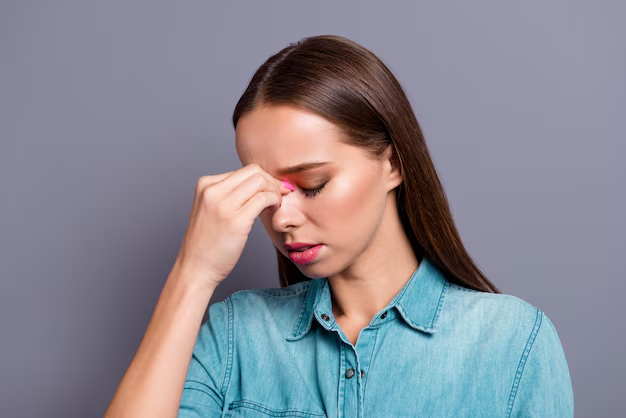Can High Blood Pressure Trigger Nosebleeds? Exploring the Link Between Hypertension and Epistaxis
High blood pressure, known medically as hypertension, affects millions of people worldwide, leading to various health complications. A common concern among those newly diagnosed with high blood pressure is whether it can cause frequent nosebleeds. It's a question that combines curiosity with a legitimate concern for health, making it essential to explore how hypertension and nosebleeds are interconnected.
Understanding Hypertension: The Silent Threat
Before diving into the relationship between hypertension and nosebleeds, it is crucial to understand what hypertension is. Often referred to as the "silent killer," hypertension displays no overt symptoms but can gradually lead to severe health issues like heart disease, stroke, and kidney problems. It’s measured using two numbers: systolic and diastolic pressure. A reading of 120/80 mmHg is considered normal, while a consistent reading above 130/80 mmHg is termed high.
Causes and Risk Factors
Primary Hypertension: This type develops over time with no identifiable cause, often due to genetic factors, poor diet, lack of exercise, obesity, and aging.
Secondary Hypertension: This form results from underlying health conditions such as kidney disease, adrenal gland disorders, or the use of certain medications.
Factors such as stress, smoking, excessive alcohol consumption, and high sodium intake can further exacerbate hypertension.
Nosebleeds: A Common Occurrence
Nosebleeds, medically known as epistaxis, are typically minor and self-limiting. They occur when the delicate blood vessels inside the nose break. This can happen due to dry air, nose picking, injury, allergies, or infections. While nosebleeds are common in all age groups, they can be alarming if they occur frequently or are severe.
Types of Nosebleeds
- Anterior Nosebleeds: These are the most common and occur at the front of the nose, often in children. They are usually easy to manage at home.
- Posterior Nosebleeds: Less common but more severe, these occur deeper in the nose and may require medical attention, more often seen in adults.
Connecting the Dots: Can Hypertension Cause Nosebleeds?
The relationship between hypertension and nosebleeds is not straightforward, but several insights provide some clarity:
Hypertension and Vessel Fragility: High blood pressure can put strain on the blood vessels throughout the body, including those in the nose. This increased pressure can make the vessels more prone to rupture, potentially leading to nosebleeds.
Severity of Hypertension: Mild or moderate hypertension is less likely to be the sole cause of frequent nosebleeds. However, very high or poorly controlled blood pressure may contribute to more frequent or severe nosebleeds due to the increased pressure on blood vessels.
Correlation vs. Causation: While many individuals with hypertension may experience nosebleeds, not everyone with nosebleeds has high blood pressure. Thus, nosebleeds can be more of a coincidental occurrence rather than a direct cause.
When to Seek Medical Advice
Persistent Nosebleeds: If nosebleeds are frequent, severe, or accompanied by symptoms like dizziness, headache, or changes in vision, it's advisable to consult a healthcare professional.
Monitoring Blood Pressure: Regular monitoring can help determine if high blood pressure might be contributing to nosebleeds or if another underlying issue exists.
Managing Hypertension and Nosebleeds
Lifestyle Adjustments for Hypertension:
- Diet: Incorporating a balanced diet rich in fruits, vegetables, whole grains, and low-fat dairy can help manage blood pressure.
- Exercise: Regular physical activity aids in reducing and controlling high blood pressure.
- Stress Management: Techniques like meditation, yoga, and deep breathing can help lower stress-induced hypertension.
Preventing Nosebleeds:
- Moisturizing the Nasal Passages: Using a humidifier or saline nasal spray can prevent dryness that makes the nasal membranes vulnerable to bleeding.
- Protection from Trauma: Avoiding nose picking and ensuring a safe environment can reduce the risk of nosebleeds.
- Staying Hydrated: Adequate water intake ensures the nasal membranes remain moist and less prone to bleeding.
Added Health Considerations
Hypertension and nosebleeds can be linked to other conditions, highlighting the importance of a holistic health approach:
Other Possible Causes of Nosebleeds
- Blood Disorders: Conditions like hemophilia or platelet dysfunction can cause frequent bleeding episodes.
- Medications: Blood thinners or anti-inflammatory drugs may increase bleeding risks.
- Environmental Factors: Seasonal allergies, dry climates, and exposure to irritants can trigger nosebleeds.
The Importance of Regular Check-Ups
Routine health screenings are vital in detecting and managing hypertension or any related complications. Early intervention can prevent long-term health issues and improve overall well-being.
Living Well with Hypertension
Managing high blood pressure is a lifelong commitment but not an insurmountable challenge. Awareness and education about the condition, coupled with proactive lifestyle choices, can lead to effective management and a healthier life.
By understanding the potential connection between hypertension and nosebleeds, you empower yourself to take the necessary steps towards health management without undue worry. Building a partnership with healthcare providers ensures that high blood pressure stays under control and any related symptoms like nosebleeds are appropriately addressed.
As you navigate the journey of managing hypertension, remain informed and proactive about your health. Minor adjustments in daily habits can make a significant difference, encouraging a future where high blood pressure doesn't overshadow your life.
🔑 Key Takeaways:
- High Blood Pressure: Often symptomless, it requires regular monitoring to prevent severe health issues.
- Nosebleeds Causes: Often benign, caused by dry air or minor trauma but can be associated with high blood pressure.
- Healthy Lifestyle: Incorporate a balanced diet, regular exercise, and stress-reduction practices.
- Seek Medical Advice: If nosebleeds are frequent or severe, consult a healthcare professional.
- Prevention Strategies: Use a humidifier, avoid nose picking, and stay hydrated to prevent nosebleeds.
Stay informed and vigilant about health, as understanding these issues can lead to a better quality of life. 🩺✨

Related Articles
- Are Eggs Bad For Hypertension
- Are Endocrine Disorders Causing Hypertension Rare
- Can Alcohol Cause Hypertension
- Can Allergies Cause Hypertension
- Can Anemci People Get Hypertension
- Can Anemia Cause Hypertension
- Can Antibiotics Cause Hypertension
- Can Anxiety Cause Hypertension
- Can Asthma Cause Hypertension
- Can Atherosclerosis Cause Hypertension
